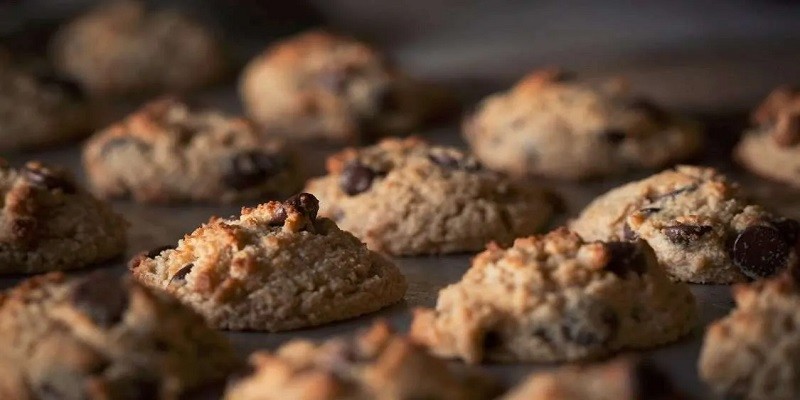Last Updated on May 25, 2024
Yes, you can eat lactation cookies even if you’re not pregnant or breastfeeding. They will not induce lactation or cause any harm.
Lactation cookies are a popular snack among breastfeeding mothers as they are believed to help boost milk supply. However, many people wonder if it’s safe to consume these cookies even if they’re not pregnant or nursing. The short answer is yes, you can eat lactation cookies without any adverse effects, but it’s important to understand what they are and their potential benefits and risks.
What are Lactation Cookies?
Lactation cookies are nutrient-dense treats made with ingredients like oats, brewer’s yeast, flaxseed, and other galactagogues (substances that promote lactation). These ingredients are thought to help increase milk production in nursing mothers, but they do not actually cause lactation in non-lactating individuals.
Nutritional Value of Lactation Cookies
| Nutritional Value | Details |
|---|---|
| Oats | Rich in fiber, iron, and beta-glucan (may help increase prolactin levels) |
| Brewer’s Yeast | High in B vitamins, protein, and minerals like iron and zinc |
| Flaxseed | Source of omega-3 fatty acids and lignans (plant compounds with estrogenic properties) |
| Nuts and Seeds | Provide healthy fats, protein, and various vitamins and minerals |
Risks of Eating Lactation Cookies During Pregnancy
| Risks | Details |
|---|---|
| Allergies | Some ingredients like nuts or wheat may trigger allergic reactions |
| Overconsumption | Excessive intake of certain nutrients like iron or omega-3s can be harmful |
| Herbal Interactions | Some herbs used in lactation cookies may interact with medications or have side effects |
Safe Ways to Eat Lactation Cookies During Pregnancy
Lactation cookies can be safely consumed during pregnancy in moderation, as long as you don’t have any allergies or sensitivities to the ingredients. However, it’s essential to consult with your healthcare provider before incorporating them into your diet, especially if you have any underlying health conditions or are taking medications.
Alternatives to Lactation Cookies During Pregnancy
| Alternatives | Precautions |
|---|---|
| Oatmeal | Avoid excessive consumption due to high fiber content |
| Nuts and Seeds | Watch for allergies and portion sizes |
| Herbal Teas | Consult with a healthcare provider for safety |
| Lactation Smoothies | Ensure proper hygiene and freshness of ingredients |
Expert Tips
- “Lactation cookies are not a magic solution for low milk supply. They should be used as a supplement to a balanced diet and proper breastfeeding techniques.”
- “While lactation cookies can be a convenient snack, it’s important to remember that they are still treats and should be consumed in moderation, especially if you have gestational diabetes or other dietary restrictions.”
- “If you’re not pregnant or breastfeeding, lactation cookies can still be a healthy snack option, but be mindful of portion sizes and your overall caloric intake.”
FAQs
Can lactation cookies induce lactation in non-pregnant women?
No, lactation cookies do not contain any ingredients that can induce lactation in non-pregnant or non-nursing women. They are designed to support milk production in breastfeeding mothers.
Are lactation cookies safe for pregnant women?
Lactation cookies are generally safe for pregnant women when consumed in moderation, but it’s best to consult with a healthcare provider before adding them to your diet.
Can men eat lactation cookies?
Yes, men can eat lactation cookies without any adverse effects, as they do not contain any hormones or substances that can induce lactation.
Do lactation cookies have any side effects?
Lactation cookies are generally safe when consumed in moderation, but some people may experience digestive issues or allergic reactions to certain ingredients like nuts or wheat.
Can lactation cookies be used as a meal replacement?
No, lactation cookies should not be used as a meal replacement. They are designed to be a supplementary snack and should be consumed as part of a balanced diet.
Conclusion
Lactation cookies can be safely consumed by individuals who are not pregnant or breastfeeding, as they do not induce lactation or cause any harm. However, it’s important to be mindful of portion sizes and to consult with a healthcare provider if you have any underlying health conditions or dietary restrictions.

